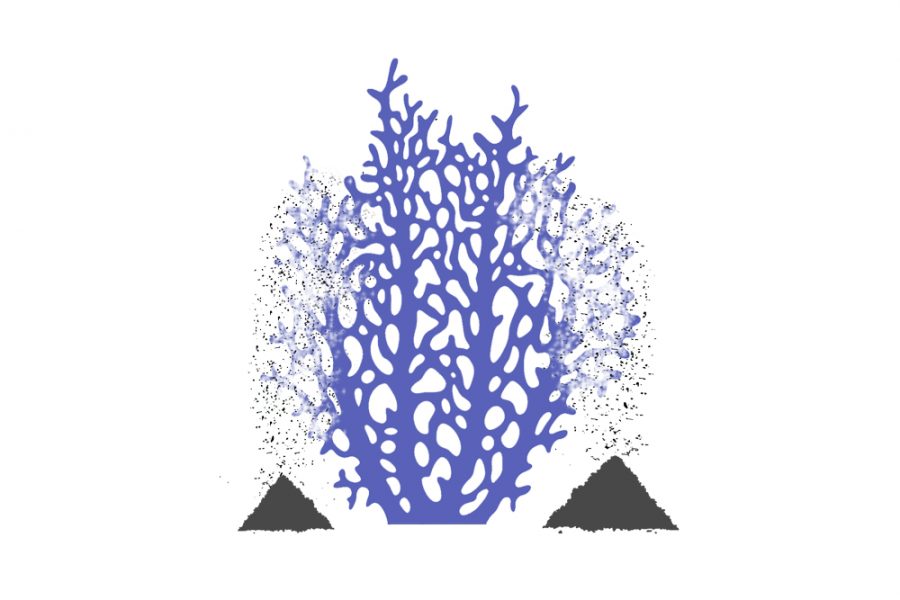RIP Great Barrier Reef? Irresponsibly advertising its death could halt potential aid
October 20, 2016
The Great Barrier Reef became the center of controversy this week when Outside Magazine published an obituary for this natural wonder of the world. The article details the 25 million year “life” of the Great Barrier Reef, and states of its death, “No one knows if a serious effort could have saved the reef, but it is clear that no such effort was made.” The death was reported to have been due to coral bleaching, the result of a climate change increase in sea water temperature that causes the coral to expel the algae living in its tissues.
Though it is true that the Great Barrier Reef is extremely compromised due to the worst period of coral bleaching recorded, to inaccurately pronounce it dead for the sake of shock value is a slap in the face to those working toward the reef’s sustainability. 95 percent of the Northern Great Barrier Reef is severely bleached, but scientists have not yet pronounced it dead.
Outside is now under fire from the science community, as many professionals find the obituary to be irresponsible. Russell Brainard, chief of the Coral Reef Ecosystem Program at NOAA’s Pacific Islands Fisheries Science Center, states that although he believes the article’s intent was to highlight the urgency of the situation, those who don’t have any context “are going to take it at face value that the Great Barrier Reef is dead.” This is counterproductive to the cause, as many who would be inclined to assist with relief processes will now consider it to be fruitless.
Though I can appreciate Outside’s attempt at heightening awareness, I am not a proponent of the publication’s means. Social media was a flurry of activity this week with mass mourning by individuals who found false legitimacy in the exaggerated article. Instilling a belief that we are past the point of no return is both damaging and foolish, and a significant piece of the evolving story was omitted.
Once reader attention had been grabbed, emphasis should have been placed on the mounting success of life-saving means as reported by the Australian Government. According to the Australian Department of the Environment and Energy, “good progress (has been made) on the 35-year plan for the reef: with 131 of 151 actions either completed or underway.”
Professor John Pandolfi from the ARC Centre at the University of Queensland has expressed hope: “It is critically important now to bolster the resilience of the reef, and to maximize its natural capacity to recover.”
The Great Barrier Reef is a UNESCO World Heritage site and the world’s largest coral reef ecosystem. It is home to over 2,000 life forms, and as such, it is a component of the ecosystem preservation that is of utmost meaning to me. The current plight of the Reef is not an isolated problem, and is not the only natural wonder that is compromised. Climate change negatively impacts our global ecological systems.
This past summer, I had opportunity to travel to Chile with the University’s Engineering 290 program. Our group visited Torres del Paine National Park, the place to which all other points of natural beauty will forever be compared in my mind. While visiting the park, we directly observed landscape denigration resulting from climate change, and learned of the possible fateful outcomes if protective measures are not soon made a global priority. It is startling to realize our connectedness to the environment in terms of resource cycling, and the fact that it is not just aesthetics we are trying to preserve. There is even prospect of future world wars occurring as a result of coveted access to water.
The good news here is that the path we are currently running is reversible. According to WWF International Director General Marco Lambertini, it is not too late for every individual to have an impact: “Responsible management of the ocean, which is essential to preserving the crucial role marine ecosystems play in providing food and jobs for billions, should be a key feature of any roadmap for a sustainable future.”
Restricted dumping, responsible fishing, mindful fuel and resource usage, reduced pollution, and focus on species diversity—these are life-supporting means that can have immediate effect on the environment’s prognosis. If we disregard our Tragedy of the Commons mentality and wake up to the fact that the actions of just one can make a difference for better or worse, this is a curable plague.
The reef is not dead, but it can be classified as a Triage Priority I. The window is closing on the opportunity to bring about positive change. We only get one, irreplaceable world. I want to be able to swim amongst the vast colors of the Great Barrier Reef someday. When setting their eyes on Torres del Paine’s mountain range for the first time, I want my grandchildren to have the chance to experience the same inspiring moment I did.
I do not want future generations to be forced to watch the gradual death of nature’s finest phenomena simply because we did not have the integrity to alter our lifestyles. Mahatma Gandhi once said, “Be the change that you wish to see in the world”. Nothing poses a greater threat to future generations than climate change; I therefore challenge every reader to set a course in the modeling of solutions. It is a path of lesser resistance to make a fix now than to suffer consequences and regret forever after.






















